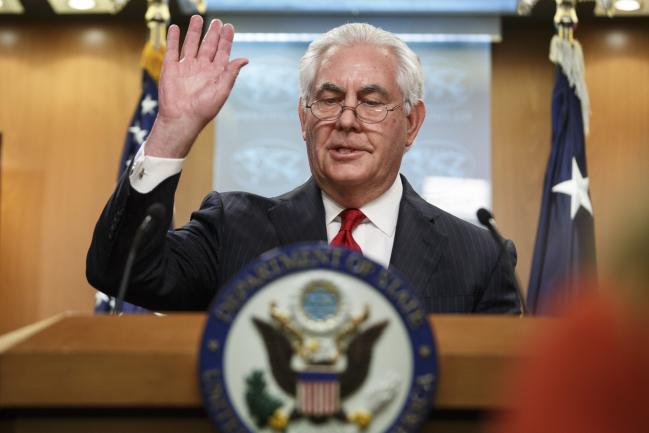(Bloomberg) -- President Donald Trump’s lead diplomat on the Iran nuclear deal said the U.S. can stay in the accord and still alter the Persian Gulf nation’s destabilizing activities.
“We believe we can work within the nuclear deal,” Brian Hook, the State Department’s director of policy planning, said Friday. He was speaking after the quarterly meeting of the joint commission overseeing the 2015 agreement between six world powers and Iran.
Diplomats convened in Vienna Friday to review the Joint Comprehensive Plan of Action, which restricts the Persian Gulf country’s nuclear work in exchange for sanctions relief. It’s the last scheduled meeting of the group before a May 12 deadline for Trump to decide whether the U.S. sticks to the accord.
“We’re having very good discussions,” Hook said, referring to negotiations with France, Germany and the U.K. on how to moderate Iran’s ballistic missile program, its support for Hezbollah and role in regional conflicts. “We are focused on the entire picture when it comes to Iran.”
Trump nominated CIA director Mike Pompeo to become his new Secretary of State on Tuesday after he dismissed Rex Tillerson via Twitter. The president cited Tillerson’s willingness to stick by the nuclear deal as one reason for replacing him. Pompeo, by contrast, has been a vocal critic of the accord.
“The deal now hangs by a thread,” said Ali Vaez, the International Crisis Group’s director of Iran policy. “The Trump administration’s move to the right with Tillerson’s departure and Pompeo’s arrival signals further hardening of Washington’s stance.”
Understanding Iran Nuclear Deal Trump Loves to Hate: QuickTake
Tillerson’s departure hasn’t affected talks over Iran and the former Secretary of State is busy managing a “smooth transition” for Pompeo, according to Hook, who spoke in the Palais Coburg in Vienna, where the Iran nuclear deal was agreed in July of 2015.
European leaders had been spurred to action by Trump’s threat to leave the deal and were working with Tillerson on ways to restrain Iran’s development of ballistic missiles. That could have helped buy time for the nuclear accord, which international inspectors say Iran continues to abide by.
